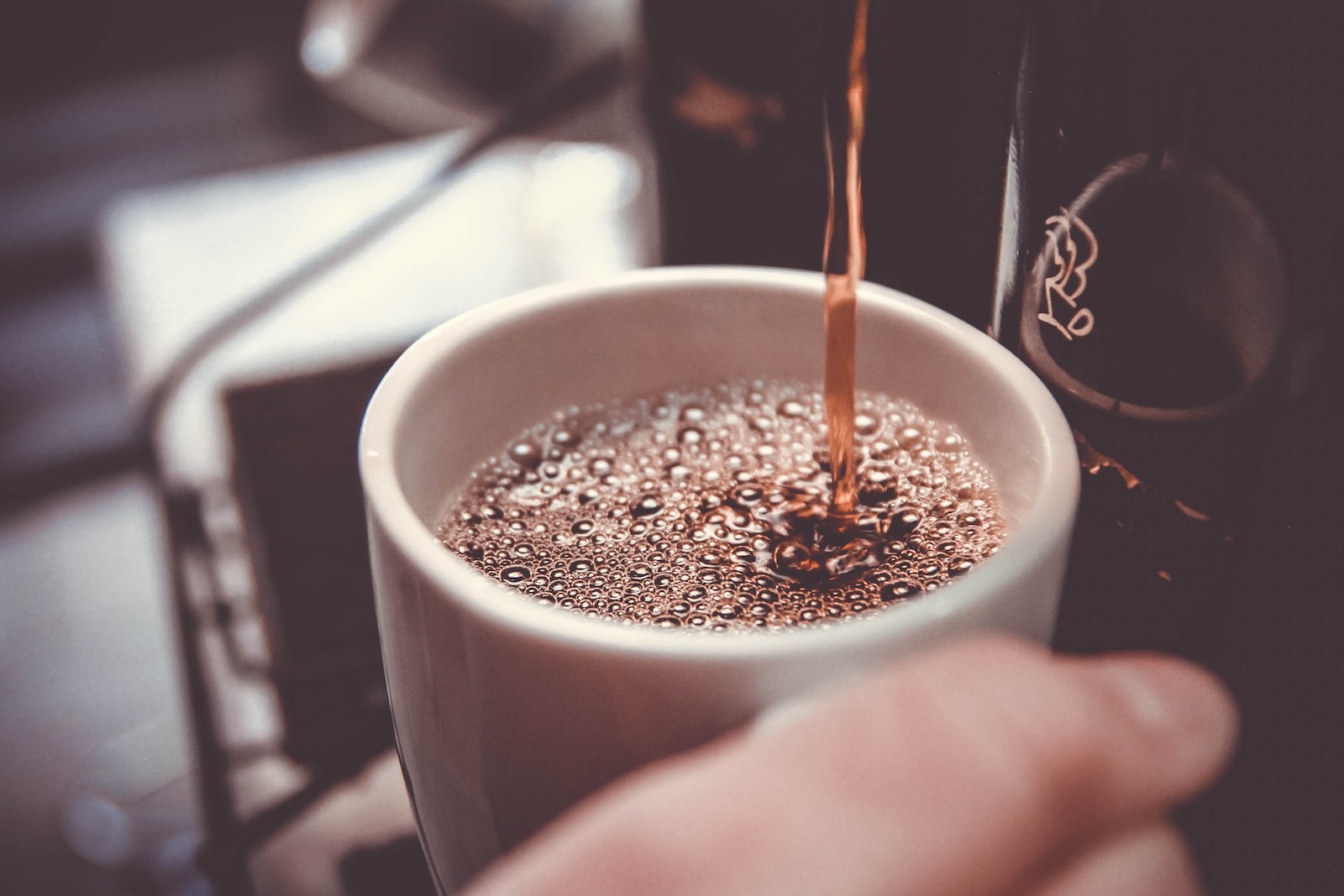The Impact of Caffeine on Athletic Performance
For many people, their daily cup of coffee is as essential to starting the day as brushing their teeth. But for athletes, caffeine can be more than just a morning pick-me-up – it can be a powerful tool for improving performance. In this blog post, we’ll explore the impact of caffeine on athletic performance and take a closer look at why so many professional athletes rely on this popular stimulant to boost their physical abilities.
From endurance sports to strength training, we’ll dive into the science behind caffeine’s effects and reveal how you can use it to enhance your own athletic endeavors. So grab your favorite mug and let’s get brewing!
Caffeine is widely available as a drug and dietary supplement, with many athletes relying on it to improve performance. In athletic competition, caffeine can be a powerful stimulant and help increase energy levels, speed up the metabolism, and improve focus. While there are some risks associated with caffeine use, such as overconsumption or adding too much caffeine to an already stressful situation, most athletes believe that these risks are worth taking in order to achieve success.
What is caffeine?

Caffeine is a psychoactive substance found in coffee, tea, cola beverages and other foods. The stimulant effects of caffeine can improve alertness and focus, as well as increase energy levels. However, too much caffeine can also have negative effects on athletic performance.
The amount of caffeine that is necessary to have an impact on athletic performance varies depending on the individual. For some people, even small amounts of caffeine can help them stay alert and focused during activities such as running or biking. However, for others, even large amounts of caffeine may not provide the desired results.
For athletes trying to achieve optimal performance, it is important to find a balance between the benefits and drawbacks of caffeine consumption. Most experts recommend staying below 400 milligrams (mg) of total caffeine per day – the equivalent of about four cups of coffee – to avoid any negative effects on athletic performance.
Note: Caffeine is also present in some over-the-counter (OTC) medications, such as pain relievers and cough medicines.
How does caffeine affect athletic performance?
Caffeine is a psychoactive stimulant found in many common beverages and foods. Caffeine is often added to energy drinks, colas, and other products to increase their alertness and performance. The impact of caffeine on athletic performance has been the subject of debate for many years. Some athletes argue that caffeine gives them an edge, while others believe that it can have negative effects on athletic performance.
Theoretically, caffeine could improve athletic performance by helping to increase alertness and concentration. Ingesting caffeine before an event could help you to stay focused and avoid feeling drowsy during the competition. Additionally, caffeine might give you an energy boost which would allow you to continue exercising longer. However, there is some evidence that caffeine can actually have negative effects on athletic performance.
For example, caffeine can keep you awake for longer periods of time which could lead to fatigue and decreased performance. Additionally, it can Increase blood pressure which could make it difficult to maintain your balance or control your movements. The jury is still out on the effects of caffeine on athletic performance , but it is generally believed that it can have a small effect on performance.
In short, caffeine can have both positive and negative effects on athletic performance. It is always important to discuss any potential effects of caffeine with your doctor before using it as an energizer during athletic events.
What products contain caffeine?
Among the many products containing caffeine, some enhance athletic performance while others are meant solely for recreation or relaxation. Caffeine is a central nervous system stimulant and is found in coffee, tea, soda, energy drinks and chocolate.
Caffeine is often included as an ingredient to improve alertness and increase energy levels. Some studies have shown that it can help improve sports performance by increasing endurance; however, more research is needed to confirm these findings. Additionally, caffeine intake before exercise may also delay the onset of fatigue and increase performance by increasing strength and power. When consumed in moderation, caffeine consumption does not appear to adversely affect sports performance overall.
Products containing caffeine can be found in most convenience stores and grocery stores.
What is the caffeine content in different types of drinks?
As mentioned earlier, caffeine is found in many types of products, with varying levels of caffeine. Some common sources of caffeine are coffee, tea, soda, energy drinks and chocolate. The caffeine content in these products varies significantly. For example, a cup of coffee typically contains about 80 milligrams of caffeine, while a can of energy drink may contain up to 400 milligrams. Due to this variation, it is important to be aware of the caffeine content in any given product you may consume.
Some other sources of caffeine include chocolate, espresso, guarana, yerba mate, and tulsi tea. The caffeine content in these products is lower than that of some of the common sources of caffeine, and it is typically not as concentrated in terms of milligrams per ounce. However, these lower-caffeine products may still contain enough caffeine to cause stimulant effects.
What are the risks associated with caffeine?
The risks associated with caffeine consumption depend on how much caffeine is consumed and in what form it is consumed. Generally, moderate intake of caffeine from various sources does not appear to have negative effects on healthiness or sports performance. However, like all substances, too much caffeine can have negative consequences.
Consuming large amounts of caffeine in any form may result in nausea, vomiting, heart arrhythmias, and even death. Additionally, coffee lovers who drink large amounts of coffee daily may suffer from negative effects such as acid reflux and decreased dental hygiene.
Are there any foods that I can consume to counteract the effects of caffeine?
Some people may find that consuming foods that contain natural caffeine such as guarana, yerba mate, or tulsi tea can help mitigate the stimulanteffects of caffeine. Additionally, drinking water before, during and after consuming caffeine may help to reduce negative effects.
How much caffeine should I drink to stay alert during sports?
Caffeine is a stimulant that is found in many different types of beverages. Many athletes consume caffeine before athletic events to help them stay alert and perform their best. There is not enough research on the effects of caffeine on athletic performance, so it is difficult to say how much caffeine an athlete should drink. However, most experts suggest that an athlete should consume around 200 to 300 milligrams of caffeine per day.
There is no set amount that is safe for all athletes, so it is important to talk to a doctor before consuming caffeine in large amounts. If you are unsure about how much caffeine is safe for you, try drinking small amounts of caffeine throughout the day rather than drinking large amounts in one sitting. This way, you can monitor how your body reacts to caffeine and decide how much is right for you.
If you are participating in an athletic event, it is important to hydrate and eat a balanced meal before the event. This will help to ensure that you are well-hydrated and have enough energy to perform at your best.
If you are unfamiliar with the amount of caffeine that is safe for you, it is best to speak with a doctor.
Conclusion
As someone who regularly enjoy caffeine, it is important to me to acknowledge the impact that this powerhouse drug has on athletic performance. Contrary to popular belief, caffeine does not provide an energy burst that allows athletes to push beyond their possible limits. In fact, when taken in high doses, caffeine can actually hinder physical performance by increasing cortisol levels and decreasing testosterone levels.
The takeaway: if you are looking to maximize your athletic performance, avoid consuming large amounts of caffeine prior to exercise. Stick with less intense drinks that will provide a steady stream of energy without triggering unwanted side effects .







2 Comments